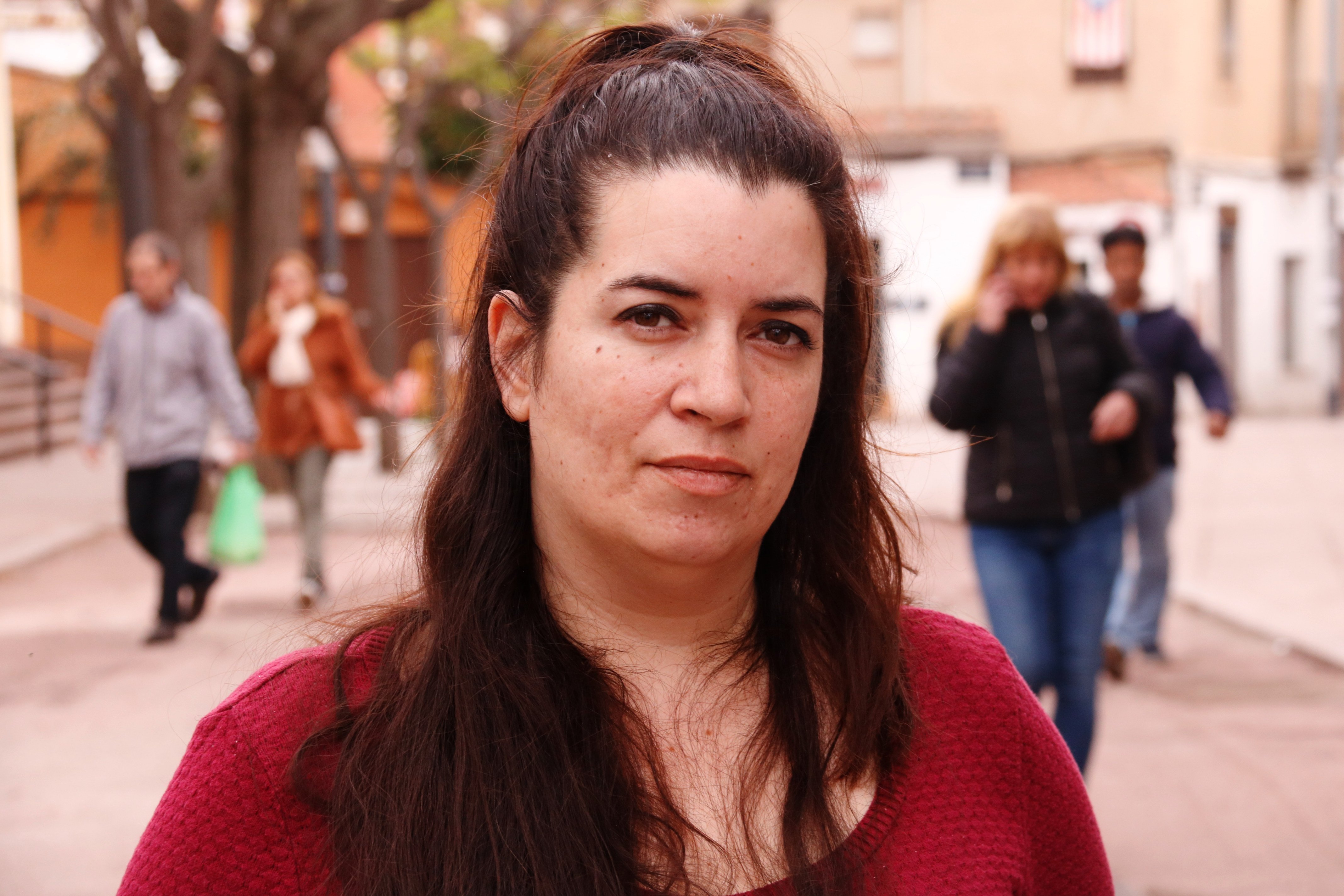A Barcelona court has acquitted a Catalan independence activist, Tamara Carrasco, on a charge of inciting public disorder. Behind a news story which sounds relatively minor, is a thirty-month ordeal suffered by a woman from Viladecans, near Barcelona, who was originally accused of rebellion and terrorism and for a year was judicially prohibited from leaving her suburban town.
The original accusations against Carrasco generated major headlines in Spanish media, and thus fueled speculation about supposed violent intentions of the CDR (Committee for the Defence of the Republic) protest groups - of which Carrasco was a member. But the charges were later reduced to an alleged instance of inciting public disorder, for which the prosecutor sought a seven month prison sentence and disqualification from the right to vote during the sentence. And this Tuesday the courts rejected that argument. Thus, Carrasco is free, and free of charges.
The judge was not convinced that in March 2018 Carrasco sent an audio message about possible CDR actions to anyone other than her group of friends or that she disseminated it via WhatsApp. Nor is it credited that she exercised coordination functions within the CDRs.
"It is absolutely impossible to determine when the incitement to commit public disorder occurs in a large demonstration or gathering, and it is clear that the message sent by the defendant does not give any such instruction," said the judge.
A una mujer no, a Tamara Carrasco. Besis 😘 https://t.co/81uvmAGzCG
— Tamara Carrasco Garcia (@TamaraVila83) October 6, 2020
The first tweet, by the Catalan High Court ("Criminal Court 25 in Barcelona acquits a woman from #Viladecans who was tried for a crime of public disorder") was retweeted by Carrasco herself, saying: "'A woman', no; [it was] Tamara Carrasco. Kisses"
The case of Carrasco
Tamara Carrasco was arrested at her home by a heavily-armed contingent of Civil Guards on April 10th, 2018 and transferred to Madrid to be investigated by the National Audience court for alleged crimes of rebellion and terrorism. The judge in Madrid decided to set aside the accusations of terrorism and rebellion and sent the case to the Catalan courts for a crime of inciting public disorder. However, he ruled that Carrasco had to remain within her town - she was prohibited from leaving Viladecans.
Six months later, and after intense debates between courts, the Barcelona Audience agreed that a Barcelona court and not a court in the town of Gavà would take charge of the case against Carrasco. At the end of May 2019, the investigating judge decided to lift the prohibition on Carrasco leaving her town, almost 14 months later, considering it disproportionate, although he maintained the investigation.
The cause of Adrià Carrasco, still pending
However, still pending is the case of another CDR activist - connected to Tamara's story in a way that seems like something from a Kafka novel. Adrià Carrasco shares the same surname as Tamara, but they are not related. And on the same day, April 10th 2018, heavily-armed and balaclava-clad Civil Guard officers also turned up at his address, in another part of metropolitan Barcelona: the suburb of Esplugues. But in Adrià's case, he fled his building and left the country, eventually reaching Belgium. Where he remains.
Adrià Carrasco: "It's a victory for Tamara, for her personal situation, but it's also more proof that the Spanish state uses exaggerated charges against activists, to stop the [political] struggles, and without any judicial foundation." "What we have before us is a political, judicial and police set-up job."
An arrest warrant was issued for Adrià, but as with Tamara, the court withdrew the terrorism charges and his case was bumped downwards. The case of Adrià was referred to courts in the towns of Granollers and Vilanova i la Geltrú - because, in his case, the accusation that remained was related to alleged roles in two motorway blockages on the AP-7 and C-32 routes.
Meanwhile, the Catalan Mossos d'Esquadra police, along with the two Spanish bodies, the National Police and the Civil Guard, have continued to arrest CDR members since the autumn of 2017 on public disorder charges for alleged blockages of roads or rail lines, in some of these cases after those sought did not voluntarily appear before the police or the court when requested.
As well, in September 2019, over 500 Civil Guard officers took part in a massive operation targeting a group of nine CDR activists who were accused of terrorism offences and, in the case of most of them, jailed preventively for more than three months. The evidence, when it finally emerged in investigating court reports, mostly consisted of possession of materials which could be used as "precursors" for the making of explosives. The charges, however, still stand.

